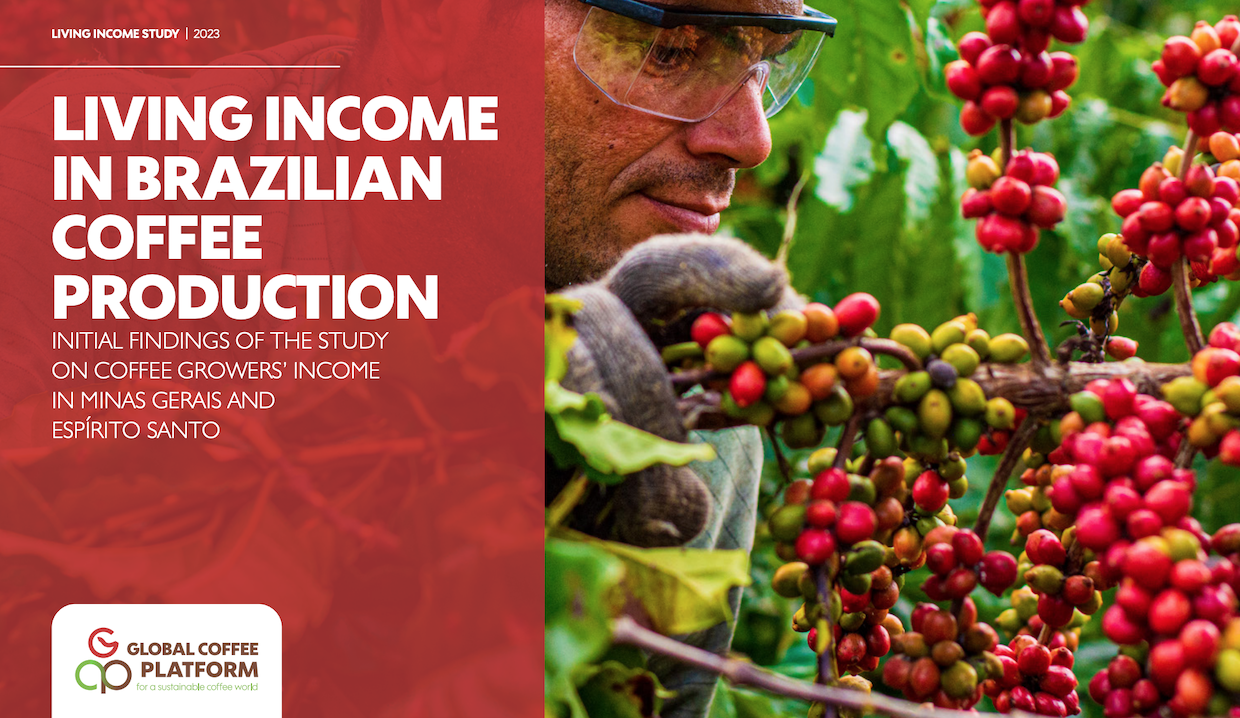Physical Address
304 North Cardinal St.
Dorchester Center, MA 02124
Physical Address
304 North Cardinal St.
Dorchester Center, MA 02124


Brazil’s major “living income” study found that most coffee producers across the country’s two largest growing regions are able to earn a living from coffee, but the majority of smallholder family farmers are not.
For context, the report notes that of Brazil’s estimated 188,000 “coffee producing units,” about 165,000 (87%) are family farms.
Coming from the international non-profit Global Coffee Platform (GCP), the report notes that climate change is further affecting sustainable income prospects, increasing risks for coffee farmers across Brazil’s coffee sector.
“The findings of this survey suggest that a portion of the interviewed farmers, especially those who fit into the category of family farming, are not subsistence farmers. These smallholders rely heavily on non-property-related income, such as outside work or government aid, to supplement household income,” the open-access report said. “On the other hand, medium- and large-scale farmers earn better incomes from coffee, according to the survey. . This result is observed when there is a more inclusive and participatory planning among the players in the coffee production chain, through cooperation processes that contribute to reducing social and economic vulnerability.”
In an announcement of the study’s findings, GCP noted that living incomes are achieved when coffee farmers have access to an “enabling environment,” which includes technical assistance, technology, access to credit, organizational linkages, logistics and market access.
The study focused on different landowners in Brazil’s two largest coffee-growing regions: Minas Gerais, which has about 123,000 “production units”, including 95,000 family farms; and Espirito Santo, which consists of about 75,000 production units, of which 58,000 are family farms.
The report suggests that income diversification – that is, generating income through activities other than coffee production – is an essential tool for Brazilian farmers, especially small-scale farmers who may be more vulnerable to the effects of climate change.
“Income supplementation plays and will continue to play an increasingly important role in the face of the challenges presented by climate change, especially when crops are affected by drought and frost,” the report said. “The high degree of vulnerability to climate may cause greater risk among less favored farmers (0 to 20 hectares) who live and produce in southern Minas and Matas de Minas.”
The 69-page report stems from the Global Coffee Platform Collective Action Initiative on Social Well-Being, a four-year pre-competitive initiative launched in 2020 with funding from international coffee giants such as Starbucks, JDE Peet’s, Nestle and Ofi. The initiative is led by Bonn, Germany-based GCP, along with the Brazilian exporters’ council Cecafe and Inpacto (National Pact for the Eradication of Slave Work Institute).
The full report is available here.
Have news to share about your coffee business? Let DCN’s editors know here.
Daily Coffee News Staff
Brazil,at the cafe,climate change,Environmental Capacity,Espirito Santo,Global Coffee Platform,Global Coffee Platform Collective Action Initiative on Social Welfare,Inpacto,living income,living wage,Mines of Mohr,plantation,small farmers
GCP Brazil Study Outlines Living Wage Disparities Among Growers